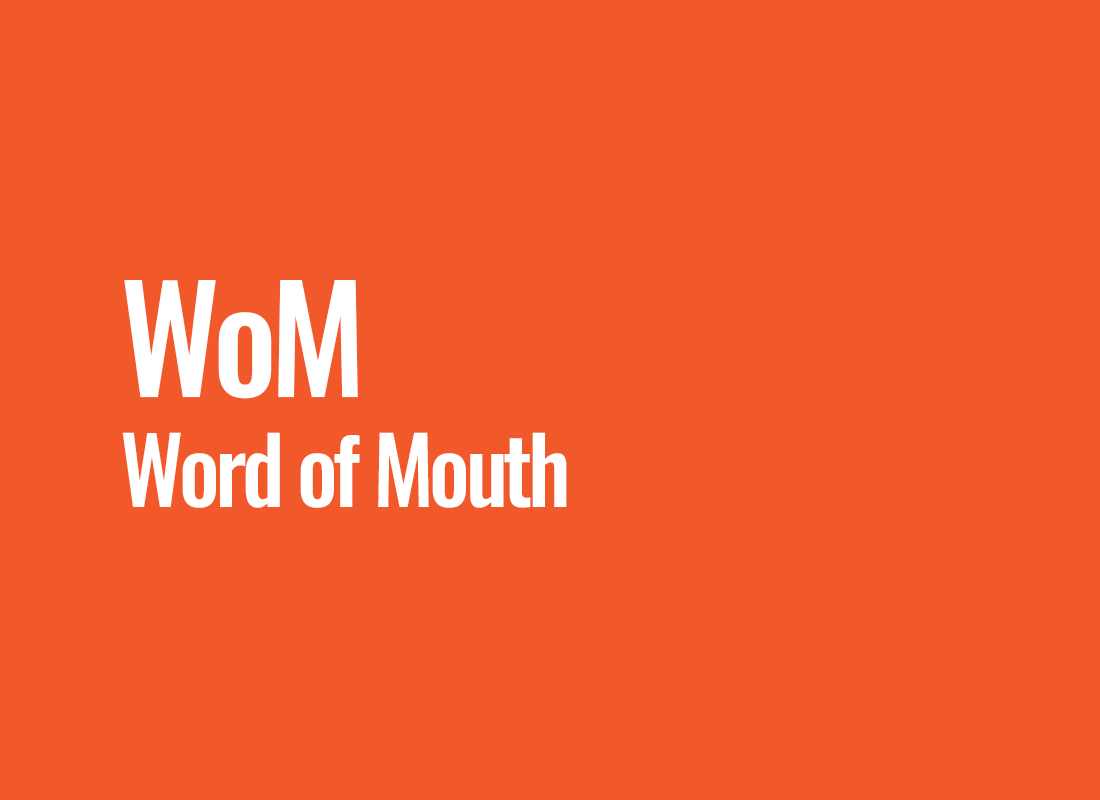WoM (Word of Mouth)
Word of Mouth (WoM) is a social phenomenon that plays a key role in marketing and business strategies. It manifests through the sharing of information and opinions about products, services, or brands among consumers informally. WoM often results from personal experiences and emotions related to a particular product or service. In the digital age, WoM is not confined to face-to-face conversations but also spreads through social media, blogs, and online forums. It's a potent tool influencing purchasing decisions, as people tend to trust recommendations from friends and family more than traditional advertising.
WoM in the Marketing World
Word of Mouth is not just a natural form of communication between consumers, but also an essential tool for businesses, especially in marketing and sales. Unlike traditional promotional methods, WoM relies on authentic and unsolicited opinions.
1. Building Trust. Customers tend to trust recommendations from friends and family more than advertisements. WoM helps build trust in the brand since these recommendations come from real users.
2. Building Trust. Customers tend to trust recommendations from friends and family more than advertisements. WoM helps build trust in the brand since these recommendations come from real users.
3. Spread on the Web: With social media, WoM can spread at an incredible speed. Opinions, reviews, and recommendations shared online can reach a wide audience in a short time.
4. Cost and Effectiveness: WoM is often a much cheaper and more effective form of promotion than traditional ads. It doesn’t require significant financial investment but can generate substantial profits if well utilized.
5. Analysis and Utilization of Data: Companies can analyze data related to WoM, such as opinions and recommendations, to understand what customers really think about their products and services. This information can be used for further refinement of offerings.
WoM in marketing is not only spontaneous recommendations but also consciously planned strategies. This includes encouraging customers to share their opinions, managing online reviews, and utilizing influencers who can promote the brand in a more natural and convincing way.
WoM in Practice
In different industries, WoM can be utilized in various ways, and here are three practical examples:
1. Loyalty Programs. Companies often offer rewards and discounts for recommending their products or services. For example, a hosting company might provide discounts to both the referrer and the new client. This strengthens relationships with current clients and attracts new ones, increasing brand reach.
2. Influencer Marketing. Some brands collaborate with influencers to naturally introduce their products into conversations among consumers. For example, a cosmetics manufacturer might send product samples to a popular blogger, who then shares their opinions with followers.
3. Managing Online Reviews. Companies can actively manage and respond to online reviews on platforms like TripAdvisor or Google Reviews. A restaurant that actively responds to reviews and thanks for positive feedback can build a strong reputation among potential clients.
Role in Modern Business
WoM is an essential tool in the digital world. It's not just a form of communication between consumers but also a strategy that companies can use to increase reach, understand customers, and build long-term relationships. Nevertheless, WoM is not without challenges. Managing negative opinions, ensuring the authenticity of recommendations, and maintaining ethical standards in practice are key aspects that businesses must focus on.
WoM will likely continue to evolve, especially in the age of increasing digitization. Companies that invest in understanding and utilizing this tool may find themselves at the forefront of innovation and competitiveness in the market.




